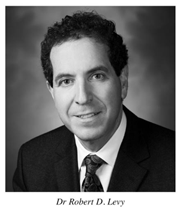Guest editorial: COPD, Part 2: Emerging from the dark, dismal past into a bright, hopeful future


In the March issue of the BCMJ, we began our two-part theme issue on chronic obstructive pulmonary disease (COPD) with articles describing COPD in BC and Canada, pharmacological approaches to patients with stable COPD, nonpharmacological management of COPD, and the physiology of the disease.
In this issue, Drs Al Lawati and FitzGerald (see page 138) outline ways that systemic corticosteroids, antibiotics, and, in hypercapnic individuals, noninvasive mechanical ventilation can accelerate recovery from exacerbations. They explain how structured rehabilitation programs can make patients feel better and keep them out of hospitals.
Owing to the complexity of COPD, patients are best managed by a multidisciplinary team. Dr van Eeden and Ms Burns (see page 143) show how multidisciplinary teams, which may include clinicians, dietitians, educators, and respiratory therapists, can work in concert. In addition to providing careful assessment of patients’ dietary, exercise, and medication regimens, a multidisciplinary team can empower patients to take ownership of their disease through education, awareness, and self-management plans.
Drs Gan and Man (see page 148) remind us of the importance of evaluating comorbidities in COPD patients. COPD patients frequently have heart disease, osteoporosis, cachexia, and depression as result of or in conjunction with their COPD. These comorbidities severely impair our patients’ health status and must be treated aggressively. Despite optimal therapy, some patients will experience exacerbations requiring urgent care. Thankfully, there are several pharmacological and nonpharmacological therapies that can be used to treat exacerbations.
Dr Sin (see page 152) provides a practical guide for general practitioners who must assist their patients in avoiding postoperative pulmonary complications.
Finally, Dr Ervin (see page 155) reminds us that despite all our efforts, some patients will die from their COPD. Thus, end-of-life issues should be discussed with patients, especially those with very advanced disease, preferably before they face a life-and-death crisis. This will ensure that the patient knows what to expect and that the patient’s wishes can be respected during periods of medical crisis.
COPD is no longer an untreatable disease. Care and management have come a long way over the past two decades, and COPD research is growing exponentially. Undoubtedly, current efforts will soon shed more light on the causes and mechanisms of COPD and lead to better drugs and management strategies that will help reduce the burden of COPD in BC and elsewhere.
—Don D. Sin, MD, MPH, FRCPC
Associate Professor of Medicine, University of British Columbia; Respiratory Division, St. Paul’s Hospital
—Robert D. Levy, MD, FRCPC
Professor of Medicine, University of British Columbia; Respiratory Division, St. Paul’s Hospital

